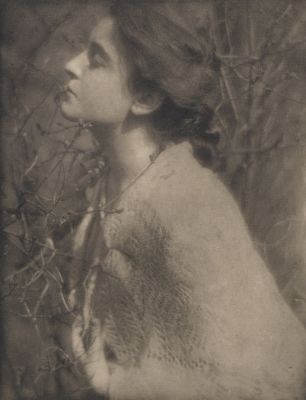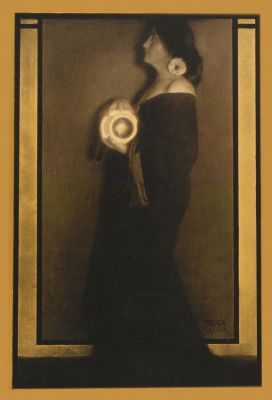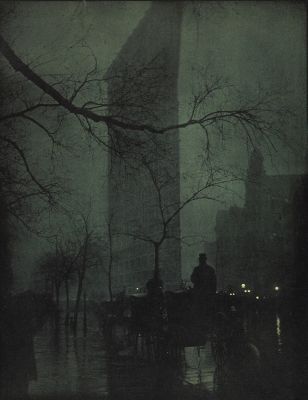
Title
Moonlight: The PondArtist
Steichen, Edward (American, 1879-1973)Publication
Camera Work XIVDate
1906Process
PhotogravureAtelier
Manhattan Photogravure Company, NYImage Size
16.2 x 20.3 cm
Steichen had already made use of various innovative printing techniques over the years, and embraced the evocative ambiguity of murky images. But Moonrise is perhaps the moment that he most seamlessly blended a romantic subject and experimental process. It was shot in the summer of 1904 when Steichen, his wife, and newborn daughter took a break from New York City. They visited Steichen’s friend, the English art critic Charles Caffin, at his home in the woodsy town of Mamaroneck in Westchester County, New York.
Where the image was taken, however, matters little to the final product. As curator Russell Lord observed in Faking It: Manipulated Photography Before Photoshop, the photograph is located in a more figurative place, and is “meant to hover like a distant memory, somewhere between the familiar and the uncanny.” Moonrise is at once realistic and dreamlike, and has the effect of seeming to slow down one’s surroundings. [1]
Reproduced / Exhibited
Doty, Robert M. Photo-secession: Photography As a Fine Art. N.Y: Eastman, 1960. plate VIII.
References
[1] Fineman Mia et al. Faking It : Manipulated Photography Before Photoshop. Metropolitan Museum of Art 2012.










